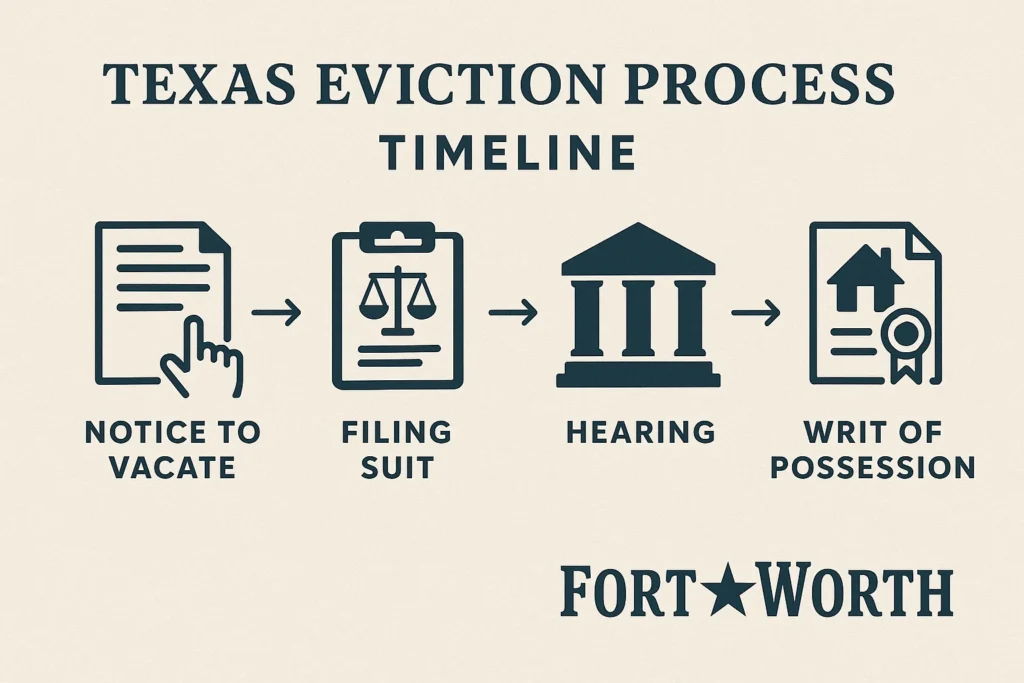Introduction
Step 1: Serving the Eviction Notice in Fort Worth
The reason for eviction (e.g., non-payment of rent or unauthorized occupancy).
The exact date by which the tenant must vacate.
Proof of proper delivery, such as in-person delivery, certified mail, or posting on the property’s door.

Step 2: Filing an Eviction Suit in Tarrant County Court
Submit a petition detailing the eviction case.
Pay a filing fee (which varies by precinct).
Provide proof of the eviction notice and its delivery.

Step 3: Attending the Eviction Hearing
- The eviction notice was properly served.
- The tenant failed to comply with the notice.
- The landlord has the legal right to reclaim the property.

Step 4: Executing a Writ of Possession
Why Hire Professionals to Evict Someone in Fort Worth?
- While you can attempt to learn how to evict someone in Fort Worth on your own, the process is filled with potential pitfalls that can lead to delays or legal issues. Here’s why working with NTX Eviction is the better option:
Expertise: We know Texas eviction laws and Tarrant County court procedures inside out, ensuring every step is done right.
Efficiency: Our streamlined process helps you reclaim your property faster, saving you time.
Stress Relief: Evictions can be contentious. We handle the paperwork, court appearances, and coordination, so you don’t have to.
Compliance: From drafting the notice to executing the writ, we ensure full adherence to state and local laws.
At NTX Eviction, we’ve helped countless landlords and property managers in Dallas-Fort Worth with tenant and squatter issues. Let us manage your eviction professionally.
Final Thoughts on How to Evict Someone in Fort Worth
Understanding how to evict someone in Fort Worth involves navigating the eviction process, from serving the initial notice to obtaining a Writ of Possession. While the steps may seem manageable, the legal requirements can be tricky, and mistakes can lead to costly setbacks. By partnering with NTX Eviction, you can ensure a smooth, compliant, and stress-free eviction process.
